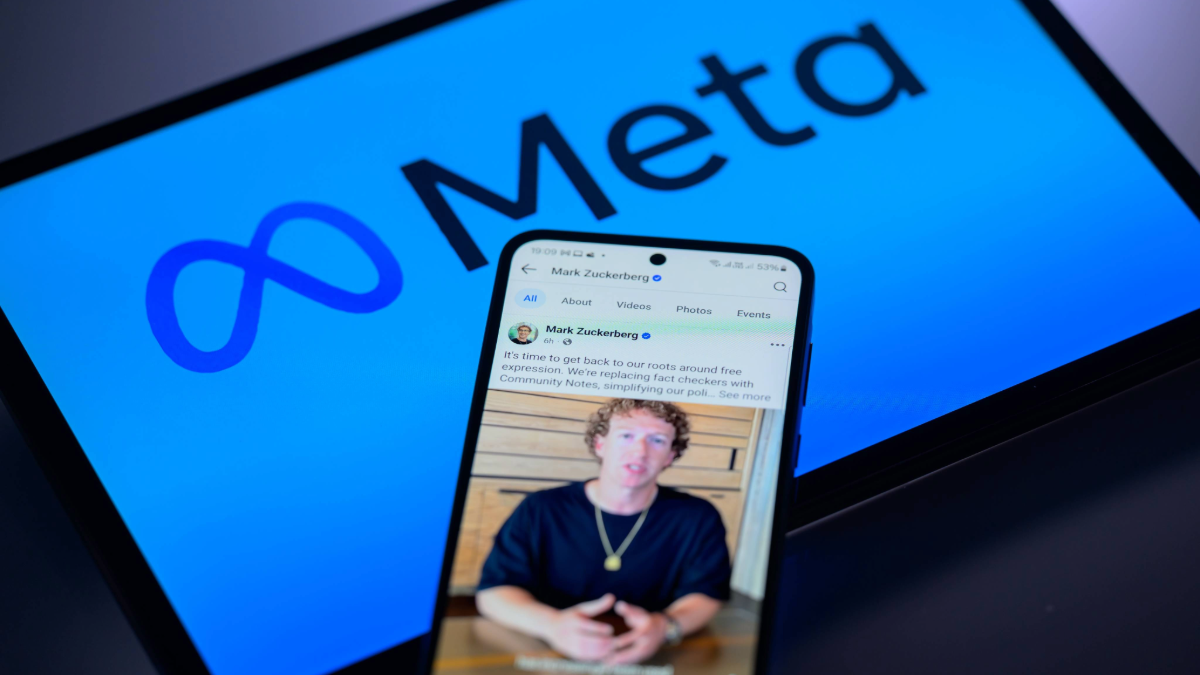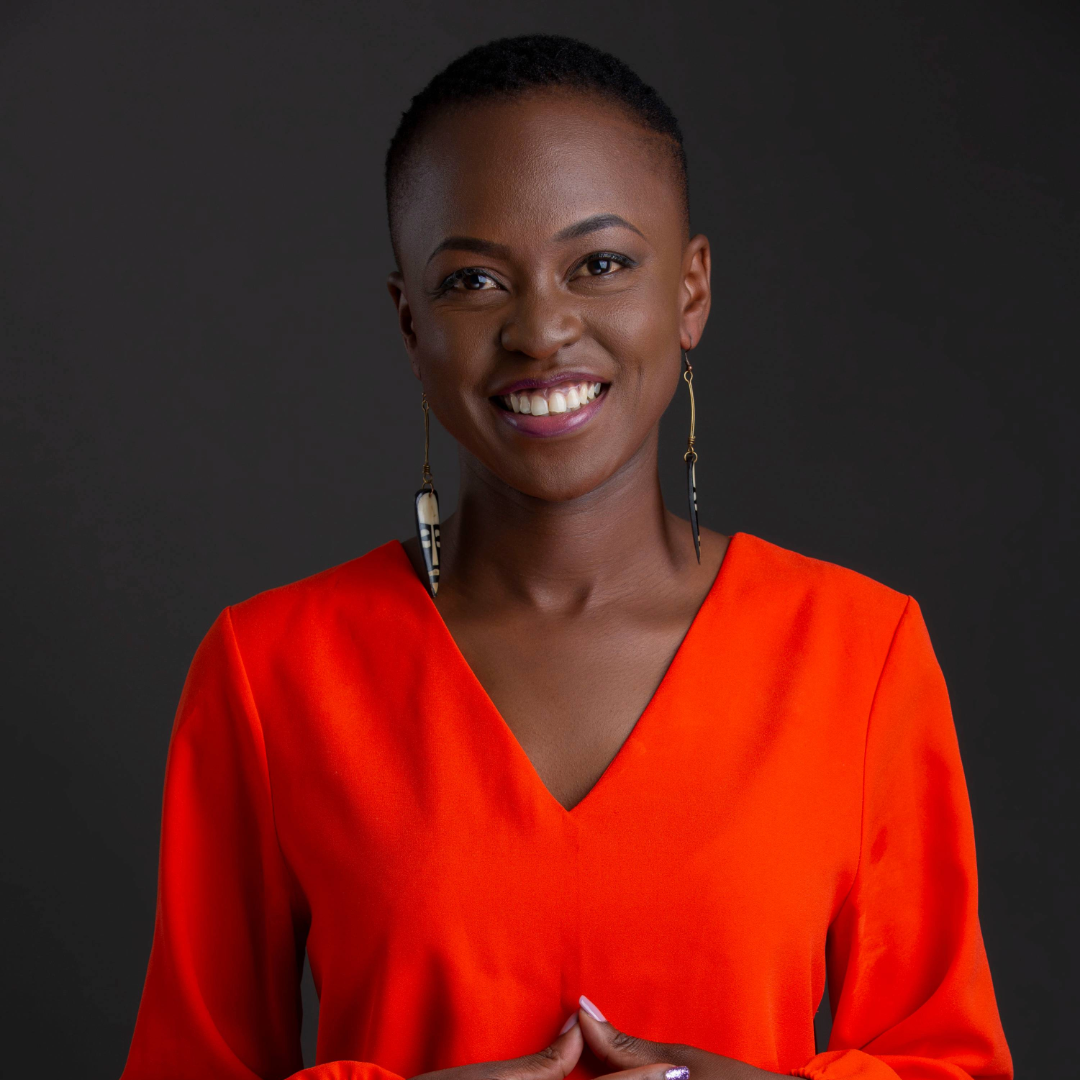Meta Discards Fact-Checking: The Fragile Future of Digital Integrity in Africa
Liz Orembo, Nerima Wako / Jan 23, 2025
Mark Zuckerberg's Facebook account is displayed on a mobile phone with the Meta logo visible on a tablet screen in this photo illustration on January 7, 2025. (Photo by Jonathan Raa/NurPhoto via Getty Images)
Meta founder and CEO Mark Zuckerberg's recent announcement signaling the end of fact-checking across Meta’s platforms—Facebook, Instagram, and Threads—has sent waves of concern throughout civil society, particularly in Africa. Recent comments by a Meta executive that the company plans to retain fact-checkers outside of the US for now do little to assuage such concerns. Labeling fact-checking as a tool of censorship that stifles speech, Zuckerberg also revealed plans to relax the platforms’ filtering algorithms, details of which were subsequently reported. He criticized his company’s current algorithmic systems for over-censoring legitimate discourse under the guise of content moderation.
Alignment with Political Agendas
Of course, these sweeping changes are not solely aimed at improving freedom of expression. They are politically aligned with calls by many global leaders to relax content moderation, particularly when it comes to material that supports their chosen narratives and goals. Most notably, President Donald Trump has frequently decried misinformation controls, arguing that MAGA Republicans are unfairly censored when their messages are removed or labeled as false. Yet allegations against social media companies during his first presidential term pointed to widespread misinformation, hate speech, and even claims of foreign interference in US elections facilitated by the platforms.
As in many other regions, the effects of such platforms in Africa are double-edged. On one hand, they have been powerful tools for free expression. Platforms like Facebook, Instagram, and X enable grassroots activism, provide small businesses with marketing opportunities, and offer citizens direct interactions with political leaders globally. In Africa, these platforms foster vibrant political participation and allow users to hold leaders accountable, particularly in contexts where traditional media outlets are limited or politically compromised. Social media has become the contemporary “town square” for holding government failures and corruption in check.
Growing Threats to Vulnerable Groups
Yet, the potential for harm has grown exponentially, especially for vulnerable populations. Political actors in Africa, much like elsewhere, weaponize networks of digital influencers to target and harass opponents. Women vying for political office are disproportionately affected, as gendered online abuse discourages their participation, dimming hopes for more inclusive leadership across the continent. Marginalized groups increasingly face malicious campaigns in the form of hate speech, fake news, and exploitation.
Beyond political harassment, Africa also grapples with rising cases of online child pornography, human trafficking, and mental health crises exacerbated by unregulated digital spaces. Democracies in Africa, many of which are still in their infancy, are especially fragile during election cycles, with weak institutions both at the national and African Union levels.
For instance, Sudan, the newest democracy in Africa, exemplifies the fragility of African democracies. It has always been on the verge of war and is today the site of the world’s bloodiest conflict. As fighting rages on, social media platforms remain influential forces for both political manipulation and triggers of violence. This was true even before the current conflict– in one instance in 2016, a Facebook post by a government official directly triggered violence, resulting in over 200 fatalities.
Kenya offers another stark example of the promise and the peril of Meta’s platforms. Over recent years, young Kenyans have increasingly used social media to demand government accountability, expose corruption, and highlight unfulfilled promises of elected officials. However, these platforms have also become battlegrounds for state-sponsored misinformation. The Kenyan government often employs bloggers to manipulate public discourse and counter calls for accountability. Tragically, such tactics have escalated into abductions of activists. Between June 2024 and the year’s end alone, over 80 individuals were reportedly abducted, some tortured and killed, for daring to challenge the ruling elite on social media.
While social media has amplified calls for justice and reform, this battlefield is also riddled with propaganda and disinformation. Efforts by African governments and other stakeholders to reach platform companies have been a challenge, as platforms' decisions to intervene are made by executives in the Global North with little understanding of the local context.
In these scenarios, the responsibility of platform administrators like Meta cannot simply be shrugged off by labeling moderation “censorship.” Failing to regulate misinformation and hate speech in such spaces means allowing governments to pivot narratives to their advantage, especially in a continent where socio-political structures often lack resilience.
Dangers of “Community Notes”
Meta’s decision to terminate fact-checking echoes a move by X (formerly Twitter), which now relies on “Community Notes” to crowdsource fact-checking. While presented as a democratized approach, community fact-checking has flaws, particularly in conflict-prone regions like Africa. The outsourcing of accountability risks exposing note-writers to harm and manipulation. In areas where government-paid influencers already game algorithms and dictate trends, community-driven systems could exacerbate the digital inequality they were meant to address.
In practice, tools like “Community Notes” privilege coordinated groups and influential actors with greater resources, further marginalizing smaller voices. The African context amplifies these dangers, given state-backed disinformation networks and persistent structural inequalities. Without robust safeguards, leveraging such crowdsourced systems in place of transparent fact-checking mechanisms will likely worsen the region’s already precarious dynamics.
The Global Geopolitical Perspective
At its core, Meta’s fact-checking rollback underscores a more significant geopolitical issue. This move mirrors broader trends where tech giants challenge international regulations by leaning on their influence in their home countries. Meta, like X, has resisted European and Latin American efforts to impose stricter content integrity rules. These firms use their economic clout to wield influence, even in Africa, where their annual revenues dwarf national economies. African leaders are often willing to work with them to satisfy their own goals.
For instance, the President of Kenya, William Ruto, has not been one to shy away from technology. On several occasions, he has pronounced Kenya to be the Silicon Savannah and remarked how digital labor is one of his key priorities when it comes to creating opportunities for the majority young population of Kenya. The billionaire former eBay executive Meg Whitman, as the US Ambassador to Kenya, enhanced his ambitions by spearheading his visit to the US, the first African head of state to make an official state visit in over 15 years, and also set up several meetings with giant tech companies in the US. However, critics saw this visit as happening at the expense of labor exploitation and human rights violations by American tech firms operating in Kenya. Early last month, in December, President Ruto publicly announced at a town hall that he was assenting to a bill that would protect tech companies. In fact, President Ruto shared that Meta and companies such as Sama Source would never be sued in Kenya. Sama has faced accusations of subjecting workers to harsh labor conditions, including exposure to deeply disturbing content without adequate mental health support.
Similarly, OpenAI CEO and Silicon Valley investor Sam Altman's eyeball-scanning crypto project, Worldcoin, evaded repercussions for data privacy violations in Kenya following a meeting with President William Ruto at the corridors of the World Economic Forum San Fransisco—raising questions about selective enforcement of data protection laws that otherwise penalize small and medium-sized enterprises, some to the point of closing businesses.
Given the critical role social media platforms play in Africa's fragile democracies, Meta's rollback of fact-checking and other content moderation mechanisms leaves Africa at a clear disadvantage. By colluding with African leaders to lobby for their interests, tech platforms prioritize profits over African prosperity and human rights. This troubling trend, combined with the alignment of tech companies to undermine global efforts for information integrity, poses an even greater threat to Africa’s fragile democracies. If big tech continues to ignore its responsibility, these platforms risk becoming tools of exploitation, further destabilizing the continent. Platforms should work with stakeholders in the countries, ensuring that no stakeholder has too much power to undermine democracies.
Authors

